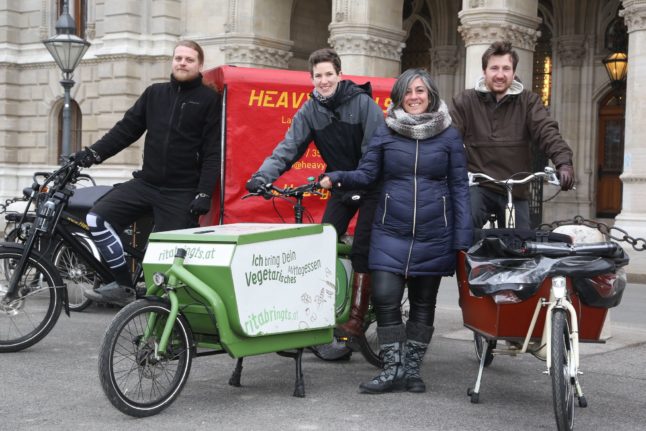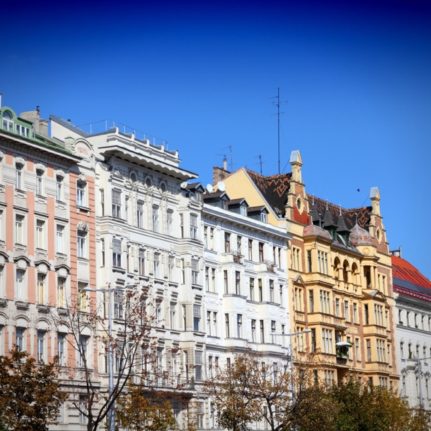If you are considering purchasing a transport bicycle and live in Vienna – where those bikes are becoming more popular – you can apply for up to €1,000 in financial support from the City of Viena.
“Transport bicycles are bicycles with added value. They can carry the weekly shopping, the things needed for an excursion, or children after a day out at a playground. All this without emitting harmful emissions. A win-win situation for people and the climate,” said Martin Blum, Managing Director of the Vienna Mobility Agency.
READ ALSO: EXPLAINED: How to claim your €200 voucher for electronics repair in Austria
The purchase of cargo bikes for private individuals is subsidised by up to €1,000. In addition, “special bikes” such as wheelchair cargo bikes or wheelchair rickshaws, mainly used to transport people with walking disabilities, will also be subsidised.
“In order to advance climate protection in Vienna, a variety of measures are needed. In addition to expanding public transport, sharing services and cycling infrastructure, we are also promoting transport bicycles,” said Mobility City Councillor Ulli Sima.
How much will the City finance?
Private individuals with their primary residence in Vienna have the opportunity to receive a subsidy. A maximum of 50 percent of the purchase price is refunded.
For transport bicycles without an electric motor, the maximum subsidy is €800. The maximum support for cargo bicycles with an electric motor is €1,000.
The subsidy applies to newly purchased transport bicycles and retroactively.
READ ALSO: Energy costs: Vienna to support 200,000 households with up to €500
Transport bicycles purchased after March 1st 2022, can be submitted for funding. The City of Vienna’s transport bicycle subsidy for private individuals will run until the end of 2026.
How do I apply for the subsidy?
The applications are made online and in two steps.
The first requires applicants to send documents with details on the bike and its cost and their own data, including your proof of residence.
READ ALSO: What you need to know about cycling in Austria
After the request is approved and you buy your cargo bike, the second step needs to be completed. It involves sending the invoice for the cargo bike, including a picture of it, and other information, including your bank account details, so that the payment can be made to your account.
In other words, the funding comes only after you’ve purchased the bike, but it is confirmed beforehand – so you don’t need to worry about buying a bike and ultimately paying the total price for it.



 Please whitelist us to continue reading.
Please whitelist us to continue reading.
Member comments